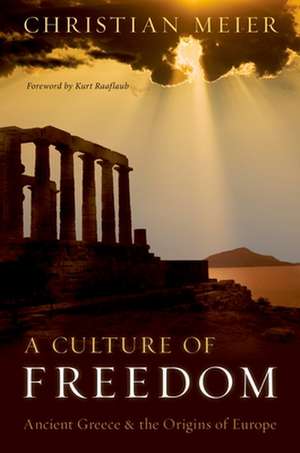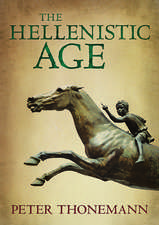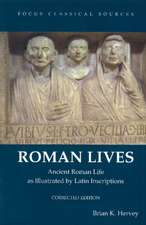A Culture of Freedom
Autor Christian Meier Traducere de Jefferson Chase Cuvânt înainte de Kurt Raaflauben Limba Engleză Hardback – 31 oct 2011
| Toate formatele și edițiile | Preț | Express |
|---|---|---|
| Hardback (2) | 118.62 lei 41-47 zile | |
| Oxford University Press – 21 sep 2011 | 118.62 lei 41-47 zile | |
| Oxford University Press – 31 oct 2011 | 447.02 lei 6-8 săpt. |
Preț: 447.02 lei
Nou
Puncte Express: 671
Preț estimativ în valută:
85.54€ • 91.47$ • 71.32£
85.54€ • 91.47$ • 71.32£
Carte tipărită la comandă
Livrare economică 18 aprilie-02 mai
Preluare comenzi: 021 569.72.76
Specificații
ISBN-13: 9780199747405
ISBN-10: 0199747407
Pagini: 315
Dimensiuni: 152 x 213 x 30 mm
Greutate: 0.5 kg
Editura: Oxford University Press
ISBN-10: 0199747407
Pagini: 315
Dimensiuni: 152 x 213 x 30 mm
Greutate: 0.5 kg
Editura: Oxford University Press
Notă biografică
Descriere
Descriere de la o altă ediție sau format:
Historians and President of the German Academy for Language and Literature in Darmstadt and in 2003 received thee prestigious Jacob Grimm prize for German literature. culture so special? A Culture of Freedom attempts to answer this question - to find the key to the 'miracle' of ancient Greece. The book takes us on a tour through the rich spectrum of Greek life and culture, from their epic and lyric poetry, political thought and philosophy, to their social life, military traditions, sport, and religious festivals, and finally to the early stages of Greek democracy. Running as a connecting thread throughout is a people's attempt to create a society based upon the freedom rather than power. It is this which, Meier argues, is the distinctive key to Greek culture, marking it out from all that had gone before, including the ancient societies of the Middle East from which the Greeks otherwise borrowed so much. The ancient Greeks managed to build a society founded on the concept of freedom - and by doing so helped mould the Europe that we live in today.
Historians and President of the German Academy for Language and Literature in Darmstadt and in 2003 received thee prestigious Jacob Grimm prize for German literature. culture so special? A Culture of Freedom attempts to answer this question - to find the key to the 'miracle' of ancient Greece. The book takes us on a tour through the rich spectrum of Greek life and culture, from their epic and lyric poetry, political thought and philosophy, to their social life, military traditions, sport, and religious festivals, and finally to the early stages of Greek democracy. Running as a connecting thread throughout is a people's attempt to create a society based upon the freedom rather than power. It is this which, Meier argues, is the distinctive key to Greek culture, marking it out from all that had gone before, including the ancient societies of the Middle East from which the Greeks otherwise borrowed so much. The ancient Greeks managed to build a society founded on the concept of freedom - and by doing so helped mould the Europe that we live in today.
Recenzii
Christian Meier is one of the most celebrated ancient historians writing today
This lucid and impassioned narrative of political freedom, written by a great historian, explains anew why the thought and practice of the ancient Greeks remains so peculiarly salient for our contemporary globalized world.
This book is special not because it traces the development of early Greek society and culture from its beginnings to the threshold of its 'classical' greatness; others have done that. Rather, this book is unique and fascinating because it allows us not just to read about this process but to relive it and thus to understand in a fundamentally new way what it meant and entailed
This lucid and impassioned narrative of political freedom, written by a great historian, explains anew why the thought and practice of the ancient Greeks remains so peculiarly salient for our contemporary globalized world.
This book is special not because it traces the development of early Greek society and culture from its beginnings to the threshold of its 'classical' greatness; others have done that. Rather, this book is unique and fascinating because it allows us not just to read about this process but to relive it and thus to understand in a fundamentally new way what it meant and entailed














